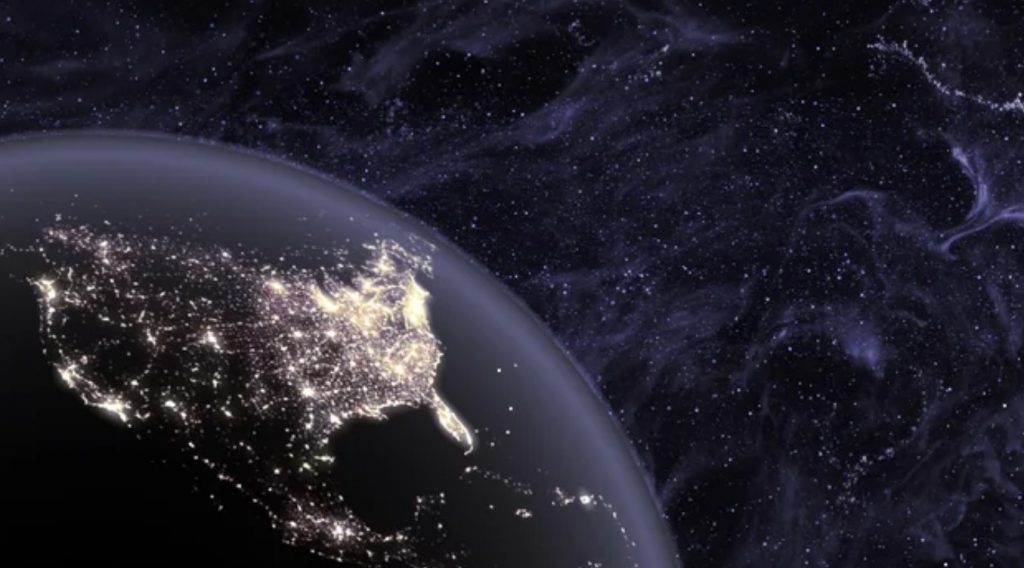
Jeff Bezos, the founder of Amazon and the CEO of the space launch company Blue Origin, caused a social media sensation when he made the following announcement of Instagram:
“Ever since I was five years old, I’ve dreamed of traveling to space. On July 20th, I will take that journey with my brother. The greatest adventure, with my best friend.”
Bezos proposes to achieve several things besides fulfilling a childhood dream shared by uncounted people on planet Earth. He will prove the safety of the New Shepard rocket ship by betting his and his brother’s lives on it. The Amazon founder will change his personal brand from that of a monopolist into a private astronaut pushing back the envelope of the final frontier. Finally, Bezos will show up his rival, Elon Musk, whose rockets regularly go into orbit, but who has not yet personally flown into space. However, Virgin Galactic’s Richard Branson may steal a march on Bezos.
The New Shepard rocket, which has flown unpiloted over a dozen times in the skies over Texas, is due to make its first flight with humans on board on the anniversary of the Apollo 11 moon landing. One of the seats will be occupied by the winner of an auction, the proceeds to which will go to charity. Bezos and his brother will occupy two of the other seats. The New Shepard passengers will fly just past the edge of space to experience a few minutes of microgravity and the greatest view of Earth ever before descending back to soft land on Earth.
Bezos will not be the first rich guy to fly into space on his own dime. Dennis Tito has that honor, thanks to a flight in 2001 to the ISS arranged by Space Adventures on board a Russian Soyuz. Since then, a number of the well-heeled and adventurous, including Iranian American businesswoman Anousheh Ansari and computer gaming magnate Richard Garriott, have taken similar rides. But Bezos will be the first to ride in a rocket ship he developed and owns.
What shall SpaceX CEO Musk do in response? The bitter rivalry between the two space entrepreneurs is no secret. Thus far, Musk has been beating Bezos hands down on both business and personal branding. SpaceX rockets regularly take both cargo and people into low Earth orbit. Musk has won the NASA contract to build the first crewed lunar lander in over 50 years. Musk has proven to be pretty endearing and cool with his recent stint as a Saturday Night Live guest host.
Musk has used the Crew Dragon to start a space tourism service. A fundraising flight, called Inspiration 4, will be the first off the launch pad. Meanwhile, Axiom has arranged for four private space flights to the International Space Station on board the Crew Dragon. A few minutes’ suborbital hop is one thing. A week-long or longer voyage to the International Space Station (ISS) is quite another. In theory, Musk could grab a seat on one of those flights and thus do Bezos one better in the rich space adventurer game.
Does Musk have the time to take a week off (or more, including preparation and training) for a space-faring vacation? He is, after all, running both a space launch company and an electric car company, among other enterprises. Will adding “private astronaut” to Musk’s personal brand be enough to take him away for a while from the serious job of disrupting both the aerospace and automotive industries?
Then again, Musk also has harbored dreams of space flight from childhood. He plans to build a Mars colony and spend his later years there. Musk is building a rocket called the Starship that will fulfill that ambition. Perhaps a ride to-and-from the ISS will be a practice run for the months-long interplanetary voyage to Mars, followed by the rest of his life on the Red Planet. Musk might think, what is the point of being one of the richest humans on the planet if one does not indulge oneself with the ultimate adventure vacation?
Musk cannot pull such a flight off before Bezos. However, Richard Branson might, perhaps on July 4. The private sector space race has just gotten personal.
Mark Whittington, who writes frequently about space and politics, has published a political study of space exploration entitled Why is It So Hard to Go Back to the Moon? as well as “The Moon, Mars and Beyond,” and, most recently, “Why is America going back to the Moon.” He blogs at Curmudgeons Corner. He is published in the Wall Street Journal, Forbes, The Hill, USA Today, the LA Times and the Washington Post, among other venues.























